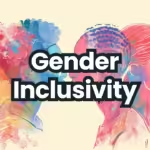Best Books on the Changing Landscape of Masculinity
Broadening Horizons Through Diverse Interests
Empowering individuals to explore identity and expression often includes encouraging self-discovery across various platforms. Just as personal journeys differ, so do avenues for recreation and entertainment. Online spaces can provide moments of joy and curiosity outside everyday routines. Explore now to see how diverse digital experiences can add new dimensions to leisure and self-care.
The concept of masculinity is undergoing significant transformation as society reexamines traditional male roles and norms. Books on this topic offer valuable insights into the evolving landscape of masculinity, providing readers with new perspectives and challenging outdated stereotypes. Whether exploring emotional vulnerability, diverse expressions of manhood, or societal expectations, these books contribute to a broader understanding of what it means to be a man in today’s world.

“Man Enough: Undefining My Masculinity” by Justin Baldoni
In “Man Enough,” Justin Baldoni delves into the societal pressures placed on men and explores his own journey to redefine masculinity. Through personal anecdotes and interviews with various figures, Baldoni challenges traditional masculine norms and advocates for a more inclusive and emotionally open version of manhood.
Key Themes:
- Vulnerability: The importance of embracing vulnerability as a strength rather than a weakness.
- Authenticity: Encouraging men to be true to themselves and break free from societal expectations.
- Redefinition: Offering a new framework for understanding and practicing masculinity.
Impact:
Baldoni’s book provides a compelling call for men to explore and express their authentic selves, challenging the constraints of traditional masculinity.
The Mask of Masculinity” by Lewis Howes
Lewis Howes examines the emotional and psychological impact of traditional masculine roles in “The Mask of Masculinity.” The book explores how societal expectations can lead to mental health issues and offers strategies for overcoming these challenges and adopting a healthier view of manhood.
Key Themes:
- Emotional Repression: The detrimental effects of suppressing emotions and adhering to rigid male stereotypes.
- Healing: Methods for men to address and heal from the emotional scars caused by traditional masculinity.
- Growth: Encouraging personal development and emotional intelligence.
Impact:
Howes’ work highlights the need for men to confront and address the emotional costs of toxic masculinity, promoting a more balanced approach to manhood.
The Way of Men” by Jack Donovan
Jack Donovan’s “The Way of Men” explores historical and cultural concepts of masculinity, presenting a perspective on traditional male roles. Donovan discusses how these roles have evolved and their relevance to modern society.
Key Themes:
- Historical Context: Understanding masculinity through historical and cultural lenses.
- Traditional Roles: Examining the impact of traditional masculine roles on contemporary society.
- Modern Relevance: Assessing how historical concepts of masculinity apply to modern life.
Impact:
Donovan’s book stimulates discussions about the role of traditional masculine values in today’s world, offering a unique perspective on their relevance and impact.
The Guy’s Guide to Feminism” by Michael Kimmel
Michael Kimmel’s “The Guy’s Guide to Feminism” provides insights into how men can engage with feminist principles and support gender equality. The book offers a guide for understanding and challenging traditional masculine norms while promoting gender equity.
Key Themes:
- Feminism: How men can contribute to feminist goals and gender equality.
- Gender Roles: Examining and questioning traditional masculine norms.
- Support: Providing practical advice for men to support gender equality in their personal and professional lives.
Impact:
Kimmel’s book encourages men to actively participate in discussions about gender equality and to challenge outdated masculine norms.
Daring Greatly: How the Courage to Be Vulnerable Transforms the Way We Live, Love, Parent, and Lead” by Brené Brown
In “Daring Greatly,” Brené Brown explores the concept of vulnerability and its role in fostering deeper, more meaningful connections. While not exclusively about masculinity, the book’s insights are crucial for understanding how vulnerability can redefine traditional male roles.
Key Themes:
- Vulnerability: The power of embracing vulnerability in personal and professional contexts.
- Connection: Building stronger relationships through emotional openness.
- Courage: Encouraging men to confront and overcome fears associated with vulnerability.
Impact:
Brown’s work provides a valuable perspective on how embracing vulnerability can challenge traditional masculine ideals and promote healthier relationships.
The New Manhood: The 7 Masculine Archetypes for a Modern World” by Steve Biddulph
Steve Biddulph’s “The New Manhood” offers a contemporary view of masculinity by exploring seven archetypes that represent different aspects of being a man. The book provides practical advice for embracing a more holistic and balanced approach to manhood.
Key Themes:
- Archetypes: Exploring different masculine archetypes and their relevance to modern life.
- Balance: Encouraging a balanced approach to masculinity that includes emotional and psychological well-being.
- Growth: Offering practical advice for personal development and self-improvement.
Impact:
Biddulph’s book presents a multifaceted view of masculinity, encouraging men to explore and embrace various aspects of their identity.
Raising Boys by Design: What the Bible and Brain Science Reveal About What Your Son Needs to Thrive” by Gregory L. Jantz and Michael G. Dye
“Raising Boys by Design” combines biblical principles with brain science to provide insights into raising boys in a way that supports their emotional and psychological development. The book addresses traditional masculine norms and offers strategies for fostering a healthier view of manhood.
Key Themes:
- Brain Science: Understanding how brain development impacts masculine behavior.
- Biblical Insights: Integrating biblical principles with modern scientific understanding.
- Parenting: Practical advice for nurturing emotional and psychological well-being in boys.
Impact:
Jantz and Dye’s book provides a framework for raising boys that challenges traditional masculine norms and supports their overall development.
Conclusion
The evolving landscape of masculinity is reflected in a diverse range of books that challenge traditional norms and offer new perspectives on what it means to be a man. From Justin Baldoni’s exploration of vulnerability to Steve Biddulph’s examination of masculine archetypes, these books provide valuable insights and practical advice for redefining masculinity. By engaging with these works, readers can gain a deeper understanding of modern manhood and contribute to fostering a healthier and more inclusive view of masculinity.



